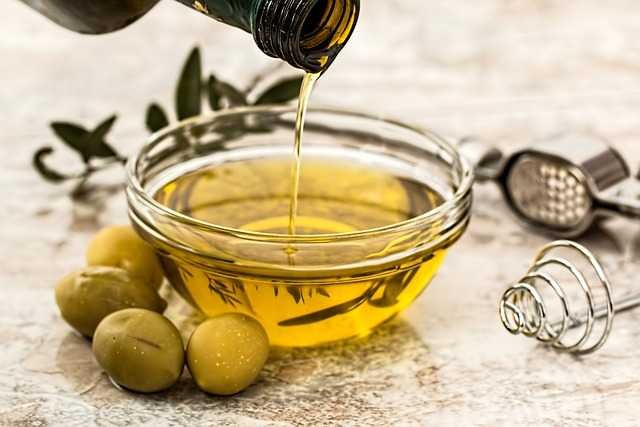Olive oil has been a staple of the Mediterranean diet for centuries and is widely used in cooking and as a dressing for salads. But for vegans, the question of whether olive oil is vegan-friendly is one that is worth exploring. In this article, we will delve into the question of whether olive oil is vegan and discuss the factors that make it vegan-friendly.
What is Olive Oil?
Olive oil is a type of oil that is extracted from the fruit of the olive tree. The oil is rich in monounsaturated fatty acids and is a good source of vitamin E. Olive oil is commonly used in cooking, as a dressing for salads, and as an ingredient in many food products. Olive oil is available in different grades, including extra-virgin, virgin, and refined olive oil.
Why Some People May Consider Olive Oil Non-Vegan
The vegan lifestyle is based on the principle of not exploiting or causing harm to animals. Vegans avoid consuming or using any animal products, including meat, dairy, eggs, and honey. Olive oil, on the other hand, is a plant-based product, so it is not immediately clear why it may be considered non-vegan. However, some vegans may argue that the production of olive oil involves the use of animal products or causes harm to animals.
One argument against the vegan-friendliness of olive oil is that the harvesting of olives involves the use of machinery that can injure or kill animals. This is because the harvesting process involves shaking the tree to make the olives fall onto a net, which is then gathered and taken to the mill for pressing. In some cases, animals such as birds, rodents, and reptiles may be living in the tree and could be injured or killed during the shaking process. While this is a valid concern, it is worth noting that the use of nets and other methods that reduce the impact of the shaking process can be employed to minimize harm to animals.
Another argument against the vegan-friendliness of olive oil is that the production process may involve the use of animal products or byproducts. For example, some mills may use animal-based materials to filter the oil, such as bone char or gelatin. However, it is worth noting that the use of these materials is not common in modern olive oil production, and there are vegan-friendly alternatives available.
Why Olive Oil is Generally Considered Vegan-Friendly
While some vegans may argue against the vegan-friendliness of olive oil, it is generally considered to be a vegan-friendly product. This is because the production of olive oil does not involve the direct use of animal products or byproducts. Olive oil is made solely from the fruit of the olive tree, which is a plant-based product.
Furthermore, olive oil is a sustainable and environmentally friendly product. The cultivation of olive trees does not involve the destruction of natural habitats or the use of harmful pesticides or fertilizers. Olive trees also require less water than other crops and help prevent soil erosion.
In addition, olive oil is a healthy and nutritious product that can form part of a balanced vegan diet. Olive oil is rich in monounsaturated fats, which can help reduce the risk of heart disease, and is a good source of vitamin E, which is important for healthy skin and eyes.
How to Ensure Vegan-Friendly Olive Oil
While olive oil is generally considered vegan-friendly, there are some things that vegans should look out for to ensure that the olive oil they are purchasing is truly vegan.
Firstly, vegans should avoid purchasing olive oil from mills that use animal-based materials to filter the oil. Instead, they should look for olive oil that has been filtered using vegan-friendly alternatives, such as diatomaceous earth or activated charcoal.
Secondly, vegans should be aware that some olive oils may contain additives or ingredients that are not vegan-friendly. For example, some flavored olive oils may contain animal-based flavorings or ingredients such as honey. It is important to read the label carefully and look for olive oil that is free from any animal-derived ingredients.
Thirdly, vegans should ensure that the company producing the olive oil is committed to sustainable and ethical practices. This includes ensuring that the cultivation of the olive trees does not involve the destruction of natural habitats or the use of harmful pesticides or fertilizers. Companies that prioritize environmental sustainability and ethical practices are more likely to produce vegan-friendly olive oil.
Finally, it is worth noting that not all olive oil is created equal. Extra-virgin olive oil, which is made from the first pressing of the olives, is considered to be of higher quality than virgin or refined olive oil. Extra-virgin olive oil has a richer flavor and aroma and is also higher in antioxidants. While all types of olive oil are vegan-friendly, opting for extra-virgin olive oil can be a way to support high-quality and ethical olive oil production.
Conclusion
In conclusion, olive oil is generally considered to be a vegan-friendly product. While some vegans may argue against its vegan-friendliness based on concerns about the harvesting process or the use of animal products in production, these concerns are not commonly supported by evidence. Olive oil is made solely from the fruit of the olive tree, making it a plant-based product that is sustainable and environmentally friendly. Vegans can ensure that they are purchasing vegan-friendly olive oil by checking the label for any animal-derived ingredients, avoiding mills that use animal-based filtering materials, and supporting companies that prioritize sustainable and ethical practices. Ultimately, including olive oil in a vegan diet can provide a range of health benefits and is a delicious and versatile ingredient that is widely enjoyed around the world.

